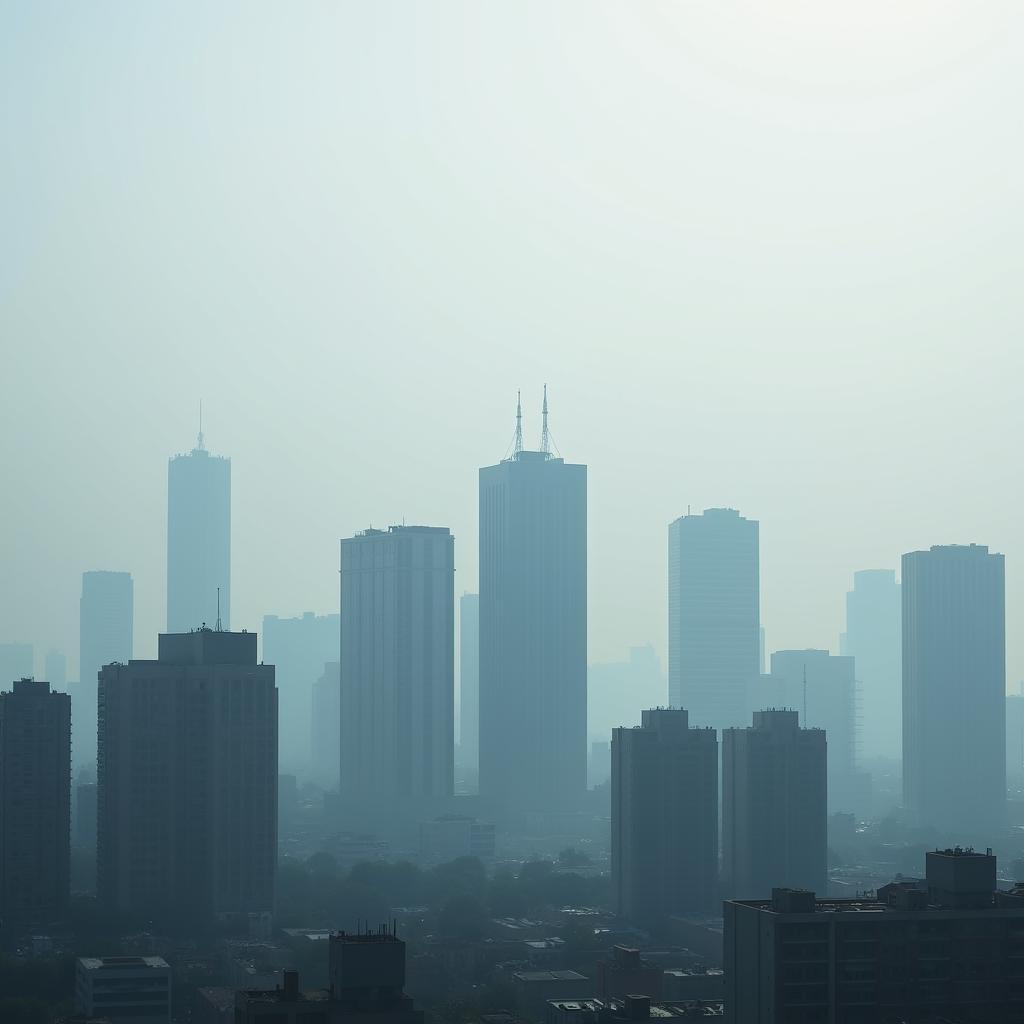Environmental pollution, a critical global issue, demands our attention. From air and water contamination to land degradation, the impact on our planet and well-being is undeniable. Understanding this complex problem and discussing it effectively, especially in English, is crucial for finding solutions and fostering a healthier future. văn nghị luận ô nhiễm môi trường
Types of Environmental Pollution and Their English Vocabulary
Air pollution, often caused by industrial emissions and vehicle exhaust, leads to respiratory problems and contributes to climate change. Key terms to describe this include “smog,” “particulate matter,” and “greenhouse gases.” Water pollution, stemming from industrial discharge and agricultural runoff, contaminates our water sources and harms aquatic life. Important vocabulary includes “effluent,” “contamination,” and “eutrophication.” Land pollution, resulting from improper waste disposal and overuse of pesticides, degrades soil quality and poses health risks. Terms like “landfill,” “hazardous waste,” and “soil erosion” are essential for discussing this issue.
 Air pollution in big cities
Air pollution in big cities
Noise pollution, a less discussed form of pollution, can cause stress, sleep disturbances, and hearing loss. Light pollution, from excessive artificial light, disrupts ecosystems and affects our sleep patterns. Using English terms like “noise pollution,” “light trespass,” and “ecological disruption” allows for a more comprehensive understanding of these issues. These various types of pollution intertwine and exacerbate one another, highlighting the urgency for global action. Knowing the specific English terminology for each type allows for clearer communication and collaboration in addressing these challenges.
The Impact of Environmental Pollution: A Global Perspective
The consequences of environmental pollution are far-reaching, affecting human health, ecosystems, and the global economy. Air pollution contributes to respiratory illnesses and cardiovascular diseases, while water pollution can cause waterborne diseases and food contamination. Land pollution degrades agricultural land and poses risks to human health through contaminated soil and groundwater. The economic impact includes healthcare costs, decreased agricultural productivity, and damage to infrastructure. Discussing these impacts in English, using terms like “public health crisis,” “ecological damage,” and “economic burden,” allows for a global dialogue and facilitates international cooperation in finding solutions.
 Impact of water pollution on marine life
Impact of water pollution on marine life
Discussing Environmental Pollution in English: Tips and Vocabulary
Effectively communicating about environmental pollution in English requires a strong vocabulary and an understanding of key concepts. Familiarize yourself with terms like “sustainable development,” “renewable energy,” and “conservation efforts.” Practice using these terms in sentences and conversations to improve your fluency. When discussing solutions, use phrases like “reducing emissions,” “promoting recycling,” and “adopting eco-friendly practices.” Engage in discussions with others, both online and offline, to improve your ability to articulate your thoughts and ideas in English. bài văn tiếng anh nói về ô nhiễm môi trường
How can students at Gia Dinh High School contribute to reducing pollution?
Students can participate in school-wide recycling programs, organize clean-up drives, and advocate for sustainable practices within the school community. Learning about environmental issues in English can empower students to become global citizens and contribute to a healthier planet.
What are some common English idioms related to environmental protection?
Idioms such as “going green,” “thinking outside the box,” and “taking the bull by the horns” are often used in discussions about environmental protection. Understanding these idioms can enhance your communication skills and make your conversations more engaging.
Conclusion
Understanding and discussing environmental pollution in English is crucial for addressing this global challenge. By expanding your vocabulary, engaging in discussions, and advocating for change, you can contribute to a healthier planet for future generations. Let’s work together to protect our environment and ensure a sustainable future. tranh vẽ ô nhiễm môi trường Remember, even small actions can make a big difference in the fight against environmental pollution.
 Students planting trees to protect the environment
Students planting trees to protect the environment
FAQ
- What are the main types of environmental pollution?
- How does air pollution affect human health?
- What are some ways to reduce water pollution?
- Why is land pollution a concern?
- How can individuals contribute to environmental protection?
- What are some key English vocabulary words related to environmental pollution?
- What are some resources for learning more about environmental issues in English?
Gợi ý các câu hỏi khác, bài viết khác có trong web:
Kêu gọi hành động: Khi cần hỗ trợ hãy liên hệ Số Điện Thoại: 02223831609, Email: [email protected] Hoặc đến địa chỉ: Đ. Nguyễn Văn Cừ, Trang Hạ, Từ Sơn, Bắc Ninh, Việt Nam. Chúng tôi có đội ngũ chăm sóc khách hàng 24/7.





